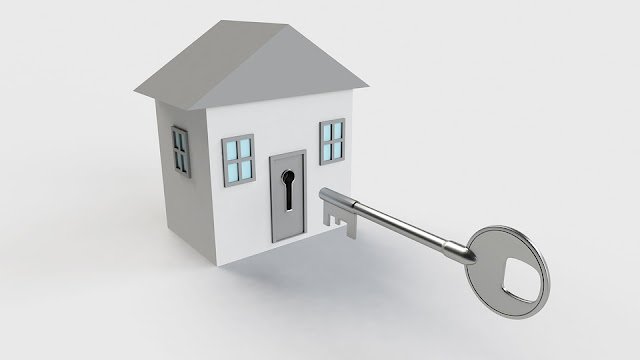How Can You Obtain a Low Down Payment Home Loan?
Purchasing a home is one of the biggest milestones in your life. Unfortunately, it can take years to save up for the required down payment – experts suggest that you have at least 20% of your home’s purchase price prior to beginning your house search. This number is inaccessible to many people, especially a first-time home buyer or return buyers still paying off the mortgage on their current home. Soaring home prices across the country also make it difficult for prospective homeowners to meet the 20% mark.
Despite these conditions, there is hope for prospective homeowners throughout Washington. Many mortgage providers offer options with low down payments for first-time and return buyers. Mortgages with low down payments can give home buyers a bit of wiggle room when they are saving up for their first or second home mortgage.
What Is a Down Payment?
If you are a first-time home buyer, you may not be familiar with how down payments work in the housing market. Simply put, a down payment is the cash money you will need to pay to the home seller to secure your purchase. Mortgage loans will pay for the remaining cash needed to cover the entire purchase price.
Mortgage lenders calculate down payments as a percentage of the entire house price. Generally, the higher the down payment you make, the lower your monthly mortgage payments will be. However, the standard 20% down payment that many housing experts recommend is not attainable for many homeowners.
For a $900,000 home, which is the average home price in Bellevue, Washington, that means you will need to save $180,000 before beginning the house search. This amount can take years to save and is not as accessible as a 5% or even 10% down payment. In contrast, you will only have to save $90,000 for a 10% down payment and $45,000 for a 5% down payment.
Down payments are important. They show the seller that you have the funds to purchase a home and show the mortgage lender that you have a significant investment in the property. In addition, the down payment also determines the “loan-to-value” ratio of your home. This ratio impacts the mortgage lender’s decision to give you a loan. Lenders calculate this ratio by dividing the mortgage loan amount by the value of the home.
For example, if you make an $80,000 down payment on an $800,000 home, the amount you will borrow will be $720,000. Your loan-to-value ratio will be 90%.
Understanding Mortgage Basics
Before we discuss the low down payment options for home buyers, we first need to understand the basics of choosing a mortgage. Selecting a mortgage that works best for you, your family, and your wallet is key to securing a low down payment. If you are going to be buying a property abroad, the mortgage process over there is likely to be different to the one you are used to, so it may be worth taking a look at sites like simonconn.com and learning as much as you can about what to expect from the process so that you can confidently go through the process.
The first decision you will have to make in choosing a mortgage is the decision between a fixed-rate loan and an adjustable-rate loan. These terms refer to the interest rate you will pay on your mortgage over time.
- Fixed-rate mortgages have the same interest rate for the entire repayment period. Each month, your mortgage payment will remain the same. If you are secure with your payment amounts and do not anticipate any drastic changes in income, a fixed-rate mortgage would work best for you.
- Adjustable-rate mortgages have interest rates that adjust after a certain period of time. Usually, you will retain a fixed interest rate for a short period of time. Often, the fixed period lasts a few years. After this period is over, the mortgage provider will usually adjust the interest rate annually. If you cannot afford the fixed-rate payment now but could in the future, an adjustable-rate mortgage would work best for you.
Next, you will have to choose between a conventional and government-insured loan. Conventional loans are not insured or guaranteed by the government; instead, private entities control these loans. Government-insured loans receive funding from various government agencies, including the Federal Housing Authority and the Department of Veterans’ Affairs.
Finally, you will have to choose between a jumbo loan or a conforming loan. Government-controlled corporations called Fannie Mae and Freddie Mac determine the size guidelines for your mortgage. Jumbo loans exceed the limits established by these agencies, while conforming loans fall within their requirements. Jumbo loans typically have higher interest rates than conforming loans due to their size.
Mortgage Options with Low Down Payments
Many conventional and government-controlled loans have options for low down payments. Government-controlled loans can have down payments as low as 3.5%. Conventional bank loans can provide down payments as low as 5%. Additional programs from Freddie Mac and Fannie Mae may also offer low down payment mortgage options. Sammamish Mortgage can pair you with a mortgage option that works best for you.
- The Piggy-Back Mortgage allows you to combine two mortgages to borrow up to 90% of a home’s purchase price. You provide a 10% down payment and receive two mortgages to avoid mortgage insurance costs. You receive one conventional loan and a home equity line of credit.
- Fannie Mae offers the HomeReady Mortgage, which allows for a 3% down payment. However, you must own a home in one of the approved areas, which are usually low-income, have a high minority population, or are affected by natural disasters.
- Freddie Mac offers the Home Possible mortgage, offering a 3% down payment option for those in certain areas similar to the HomeReady mortgage.
- Conventional 97 loans offer a 3% down payment under the Federal Housing Finance Agency. This mortgage amount can only be as high as $484,350.
- Federal Housing Authority (FHA) loans provide 3.5% down payments for prospective home buyers with lower credit scores. An FHA loan is government-controlled. You will have to pay additional insurance premiums if you opt for this mortgage option.
- The Department of Veterans’ Affairs also offers loan options. You must meet eligibility criteria to receive a VA loan.
Risks of Government-Controlled Loans
Some of the lowest down payments in the mortgage market are available through government-controlled loans. These low down payments can easily sway prospective homeowners. As a result, these buyers do not critically examine the drawbacks of government-controlled mortgage options.
FHA loans offer down payments as little as 3.5%. In addition, borrowers with a poor credit history can receive loans with FHA support. However, the low down payment can lead you to make a poor purchasing decision – while achieving a low down payment is ideal, you should not put a payment down on a home you cannot afford in the long run. Down payment rates that are too low can make your repayment plan longer and increase the amount of interest you pay over time.
The FHA’s low down payment will require you to pay upfront insurance each month. You may not have this amount in your budget and may be surprised with a higher upfront cost than you could receive with a conventional loan. FHA loans also come with certain regulations regarding the quality of your home – if the home is in poor condition, the FHA may not approve your mortgage application.
Many sellers hesitate when selling a home to potential buyers who have an FHA loan. These loans do not signal a strong credit history, and FHA loans often require sellers to meet very strict requirements. It may be a better decision to focus on building your credit history to qualify for a conventional loan with a low down payment than to rush into an FHA loan with higher payments and lower selling rates.
Tips for Obtaining a Low Down Payment
Obtaining a low down payment requires a good deal of outside research, a solid credit history, and an understanding of your financial limits. There are a few solid tips you can follow to increase your chance for mortgage approval and secure a lower down payment.
- Build your credit history. If you do not have good credit, you will not receive a mortgage from a majority of lenders. Many private entities require a minimum credit score of 680. If you have a lower score, focus on building and strengthening your credit before you apply for a mortgage.
Making on-time payments, lowering existing debt, and regularly checking your credit report to improve your credit score will increase the likelihood of you getting the loan you want.
- Save as much cash as you can. While a 20% down payment is quite high, you should aim to save at least 8% of your potential home purchase price. You will also need to save additional cash for closing costs, inspections, application fees, and other unexpected expenses. For a $900,000 property, you should aim to save $72,000 or more prior to your house hunt.
- Understand your budget. Evaluating your monthly expenses can help you come up with a down payment savings plan. In addition, you can assess how much you could comfortably afford for your monthly mortgage payment.
You will also need to factor in additional costs to your monthly budget if you are a first-time home buyer, such as insurance premiums and property taxes. This exercise will also keep you from a too-low down payment swaying you into purchasing a home you cannot afford.
Are you in the market for a second home mortgage? There are additional factors you may have to consider before applying for another loan. While you could obtain another low down payment, you will have to prepare for higher interest rates overall. You will need to focus on improving your credit history and prove to the banks that you can comfortably afford both of your mortgage payments each month.
Benefits of Paying a Higher Down Payment
While you may want to strive for a lower down payment, you should still attempt to save as much cash as you can. Paying a higher down payment upfront can help reduce your costs in the long run. While the 20% figure may not be possible for your budget, a 10% or 15% down payment can provide more benefits than a 3% or 5% payment could.
- You will pay less for your home in the long run. A higher down payment upfront will reduce the amount you have to pay on your mortgage loan, along with your overall interest costs.
- You may receive a lower interest rate with a higher down payment. Since a larger payment signals financial strength, banks are more willing to offer a lower interest option to you.
- You will beat out other prospective buyers for your dream home. Home sellers prefer buyers who can make higher down payments because they signal financial strength and a high chance of mortgage approval. If you’re up against another buyer making a 5% down payment, a 10% down payment can give you an edge in negotiations.
Obtain the Services of a Mortgage Provider
To find the best mortgage rates and down payment options for your house search, obtain the services of a trusted mortgage lender. These services allow you to learn about different mortgage rates in your area, find a loan program that works best for your financial needs, and assess your financial situation to find the best mortgage for your budget. Mortgage lenders can guide you through the confusing loan process and help you make smart, measured decisions for your financial future.
Sammamish Mortgage is a family-owned and operated mortgage lender assisting Kirkland, Seattle, and Bellevue residents with the mortgage process since 1992. We strive to maintain transparency and ease of access to assist our clients with all their mortgage needs.
With Sammamish Mortgage service, you receive:
- Free pre-approvals without any application fees
- Custom, accurate, and timely mortgage quotes
- Technology to help you price your own loan
- The ability to track and compare mortgage rates
- An online digital mortgage process for ultimate accessibility
- A free home valuation report
- The ability to refinance or purchase your dream home
Sammamish Mortgage is proud to provide mortgages for properties throughout Washington state. We also provide mortgage services in all of Oregon, Idaho, and Colorado. Our award-winning professionals are ready to help you obtain the best mortgage for your financial situation.
Contact Sammamish Mortgage today to learn more about Sammamish Mortgage’s services and to receive your free mortgage quote.



